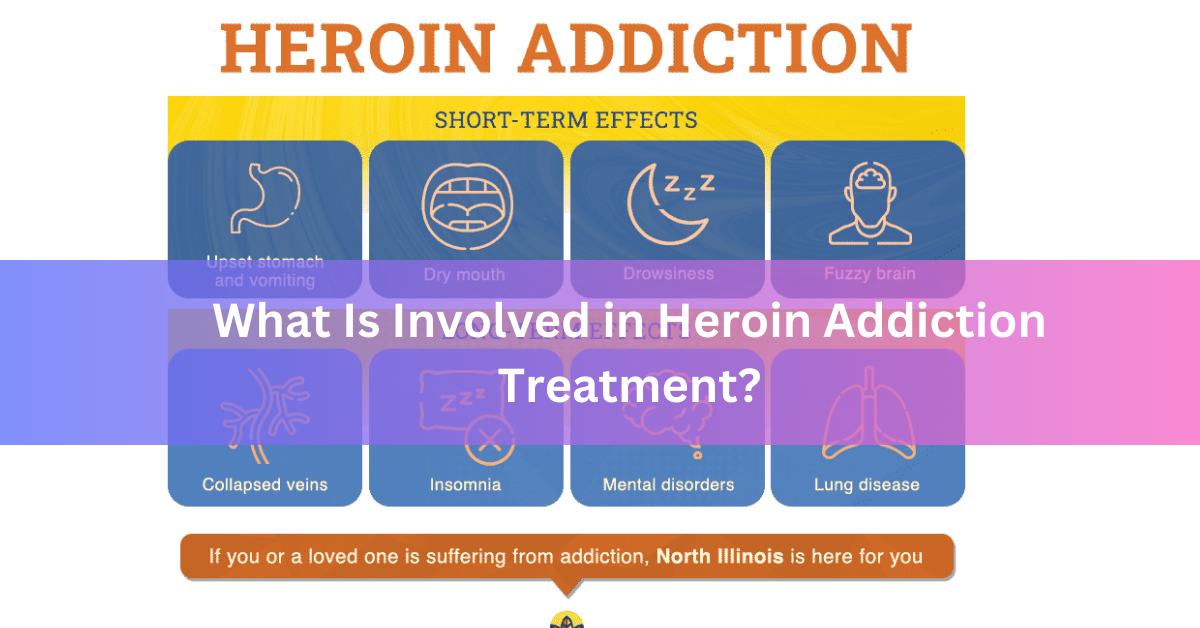What Is Involved in Heroin Addiction Treatment?
Heroin is an opiate drug that can cause addiction, and its misuse can have severe health consequences. Dealing with heroin addiction may be a technical process that requires professional help.
Heroin addiction treatment may include a range of different therapies, medications, and support services. Here is a summary of what is usually involved in heroin treatment:
Behavioral Therapies
This treatment aims to change the patient’s behavior and thought patterns related to heroin use. This may include cognitive-behavioral therapy, dialectical behavior therapy, and contingency management.
Contingency management employs a reward system where patients earn points for negative drug tests, which can be exchanged for incentives promoting a healthy lifestyle.
Cognitive-Behavioral Therapy (CBT) aims to modify the patient’s expectations and behaviors related to drug use while enhancing coping skills for life stressors. One-on-one counseling sessions offer personalized support and strategies tailored to the patient’s specific needs.
Pharmacological Treatment (Medications)
This treatment involves using prescribed medications to reduce opioid cravings and alleviate withdrawal symptoms. Methadone is an orally administered opioid agonist taken to minimize the euphoric effects.
Buprenorphine is an opioid receptor. It slows down drug cravings with fewer side effects compared to other opioids. Suboxone is a combination of buprenorphine and naloxone, which helps reduce the patient’s risk of overdose.
Naltrexone blocks the effects of opioids without causing addiction. The long-acting injectable form, Vivitrol, helps prevent opioid dependence relapse and eliminates the need for daily dosing.
Detoxification (Detox)
Heroin detoxification involves easing withdrawal symptoms, which include pain, diarrhea, nausea, and vomiting. Medications like lofexidine may be helpful during this phase. The duration of heroin detoxification may vary depending on the individual’s level of dependence and the method used.
Factors That Determine the Right Course of Heroin Addiction Treatment
Severity and Duration of Heroin Use
The duration of use may help in assessing the right kind of care needed for a successful recovery. If someone has been using heroin over a long period of time, they might require more intense interventions such as residential treatment programs.
Coexisting Mental Health Conditions
Heroin use may factor in developing mental health issues, such as depression and anxiety. People with co-occurring disorders may need targeted therapy and appropriate medications during their addiction treatment.
Level of Motivation and Commitment to Recovery
The user’s ability to commit and stay in recovery may determine when choosing a heroin addiction treatment. A user with a solid commitment to getting clean may be better suited for an outpatient program.
Social Support Network
A supportive network of family, friends, and peers may help sustain long-term sobriety. This network may give the user structure and positive reinforcement during recovery. An extensive social support network may provide the user with emotional and practical assistance.
Take the First Step Towards Recovery from Heroin Addiction
Heroin addiction may pose a serious medical condition that requires professional heroin addiction treatment. There are many effective treatments available for individuals who suffer from this disorder.
Behavioral therapies and pharmacological interventions may help reduce drug cravings and withdrawal symptoms. Detoxification may also be necessary to remove the toxins from the body. If you’re ready to take the first step towards recovery from heroin addiction, reach out for help from a qualified healthcare professional who can offer evidence-based treatments.


